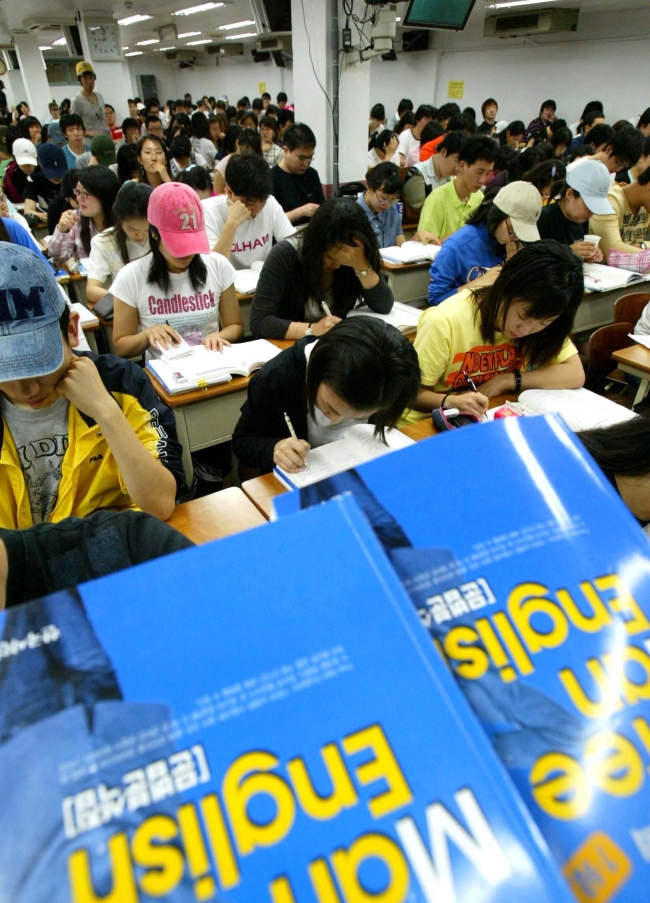
Kim So-yeon, a 23-year-old college student, spends two to three hours each day memorizing English expressions, doing listening exercises and reading English news articles.
She also routinely takes the TOEIC, one of the popular English proficiency tests, every three months, hoping to get a higher score to make her resume look better.
“I go to a hagwon (private institute) for the test and spend more than 350,000 won ($332) a month just for English,” said the senior at Sogang University.
“I don’t think a test can improve English skills, but I have no choice, and most companies here request applicants to submit the English test score.”
Like Kim, more than half of all Korean university students receive private education in order to land a decent job after graduation, spending an average of 2 million won a year.
According to a recent survey of 461 respondents by the online recruiting portal website JobKorea, 53 percent said they spend the most money on taking English proficiency tests such as the TOEIC, TOEFL or TEPS, while 43 percent said they spend on private education to improve English conversation skills.
Korea, in fact, spends the highest percentage of GDP on education among the members of the Organization for Economic Cooperation and Development.
The country spent nearly 8 percent of GDP on public education ― 4.8 percent by the government and 2.8 percent, much of it on English education, by the private sector ― in 2011.
Of the 5.4 million South Koreans aged 15-29 who are not economically active, 11 percent are preparing for various kinds of exams to find a job, according to a report by Statistics Korea. The TOEIC, for instance, now attracts more than 2 million Korean test takers each year.
This spending, however, has not yielded equal returns. Korean adults’ English language skills have remained at an intermediate level over the past six years, according to a recent survey by Education First, an international education firm based in Switzerland.
The survey found that Korea ranked 24th among 60 countries where English is not a native language.
Experts said one of the biggest problems is that Koreans study English mostly to get high scores on English proficiency tests or school exams rather than to improve their actual communication skills.
“Many students in Korea study English as they prepare for exams. Thus, they ‘study’ English books rather than enjoy them. They regard English as an academic field rather than a communication tool,” said Byun Joo-kyung, an interpreter who has never been abroad to study English.
“I hope that people view English as something to enjoy, something they are curious about and something they can use to communicate with foreigners rather than as one of the boring academic subjects.”
By Oh Kyu-wook (596story@heraldcorp.com)
-
Articles by Korea Herald



















![[Today’s K-pop] Treasure to publish magazine for debut anniversary](http://res.heraldm.com/phpwas/restmb_idxmake.php?idx=642&simg=/content/image/2024/07/26/20240726050551_0.jpg&u=)